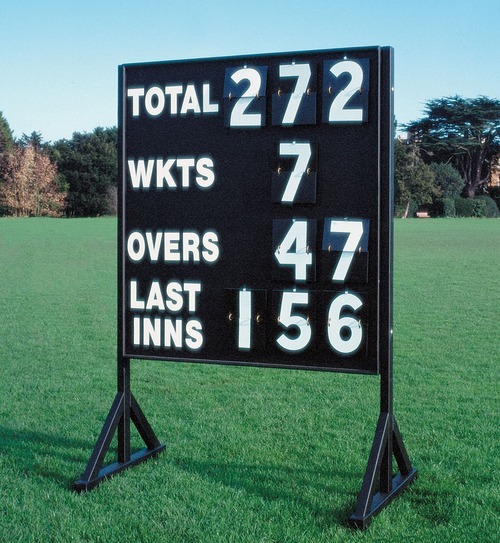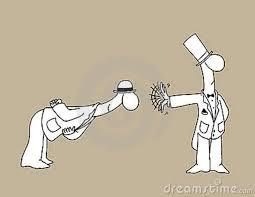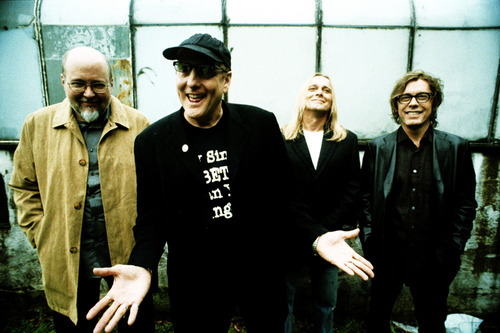My piece for the Jewish Quarterly has just gone online along with others about the Jewish conference (and conferencing approach) Limmud.
dark mountain [g+ backpost]
The New York Times has just done a pretty massive feature on my friend Paul Kingsnorth and specifically on the project he and (my other friend) Dougald Hine began as a response to ecological and civilisational collapse.
It’s a project that I’ve been intimately involved in, as a co-architect of the ritual component of the last three festivals, storyteller, workshopper and helper-outer. This is the first summer in five where we won’t be all gathering, and I know I’m not the only one to feel the absence. One of the most total experiences of community I’ve experienced, community across religion, nationality, ethnicity, gender, sexuality, and age. It was there I’ve experienced some of the times I’ve felt most human, most chastened, most brimming over.
We were never going to metamorphose into a radical eco-village. We were united not by shared interests or purpose – I have my doubts that either are sufficient for what I consider community* – but by the space we came together in, and a commitment to allowing that space to be a coming-to-terms-with, in whatever way worked for each of us. There wasn’t a permanence in the gatherings; there couldn’t be.
Still these people are important to me, and I’m using this as a spur for more intimate meetings. In May I’ll take the train up to rural Sweden to visit Dougald and Anna for a spell, to talk, walk and think. Over that month and then next I’ll be just one of three or four mountaineers visiting, which promises a languid conversation smeared across the weeks, thoughts carried, deposited, picked up and turned over in hand. Can I make it to Ireland, to Paul and Nav? Scotland to Em and Dougie? Norwich to Ava? Berlin to Jeppe, and to Cat? In time.
In a way, losing the frenetic energy of the festival meetups reminds that these things, truly meeting with others, can’t be hurried, really. I read in a lot of my social feeds of whirlwind meetup weekends and regrets of not spending more time with people, and I definitely know where they are coming from. So I’m going to design more of my life away from that in the future.
And those August weeks thick with magic in the English countryside; won’t they be missed? They deserve to be. But this year, I’ll have to carve out some nostalgia time amongst three weeks of story camps working with teenagers and with families in green Germany. That should soften the blow.
This was a roundup on my Dark Mountain past and present. I recommend the NYT piece but if you’re really interested there is a lot more on the site including some information about the newest book: http://dark-mountain.net/
* If you’re interested, I’ve written around this subject in this Creative Commons piece from the book “Dispatches from the Invisible Revolution”. http://www.appropedia.org/A_show_of_hands_-_Alex_Fradera
April 2014
I’ve been wrong about improv all along.
I’ve been wrong about improv all along.
Check this out. Maria is smart.
I always thought that improv was like a mountain that you could get to the top of.
I figured practising it was a long uphill journey to ‘getting good’. That those stages you go through when you lose confidence is like sliding back down the mountain a few feet but ultimately if you keep your head…
Competition! Round Two: Show over Self

We’re talking about competitive impro – see Part 1 here. We left off with a nice account of how Theatresports, with its ‘contest’ of team versus team, is well positioned to create heat and energy in the audience
Obviously, not all competitive shows need to be the same. You might decide to play with an energy and vibe different from wrestling/sports, or even deconstruct it in some way. And I should note that Theatresports is carefully designed to produce its atmosphere, through Judges-as-bad-cops, scoring often taken out of the hands of the audience, the ‘Horn for Boring’, the basket. The Maestro format certainly has less ‘heat’, on the whole – although if you have a couple of mischievous players, like Daniel Arantia and Shawn Kinley, then all bets are off. But the core point remains: competition isn’t, really.
In actual fact, sometimes for the good of the show you need to take a risk that may provide you with a lower score, like doing a differently-paced scene to avoid pushing the audience to the limits of what they can take, or even just doing something crazy experimental with a strong likelihood of ‘not working’ to show the audience early on that the show can take any twists and turns, and we’re ok with that – and ok with their honesty on what did or didn’t work.
I remember a Theatresports final way back when – this is second-hand reporting; I couldn’t make the final (anyway we got kicked out in the first round, which is a typical Theatresports for me. Maestros treat me well, though). Somehow, an audience member managed to get entered onto the scoreboard as if they were a team, awarded points each round, and ended up winning the show. Apparently the front-runners were incredibly gracious in awarding them the trophy, but in the days that followed there was some wondering (perhaps not from the group but from friends or fans) whether this prevented them from claiming the bona fide champion title, for their press/flyers etc. It’s an understandable instinct that is also symptomatic of how easy it is for real-competition to creep into play-competition.
Similarly, I remember operating lights in another show and bringing a blackout three seconds into a scene because the very first line was a clear, funny button. (I would have been too chicken to do this on my own; the director correctly waved me down.) Again, I got the sense of a little dissatisfaction from the players: the scene got a good but not great score, I guess because the audience felt they hadn’t earned max points, and the team were very strong, so may have felt that possibility was stomped on.
And in terms of fair competition? Absolutely, they were (possibly) robbed of a point (or we saved them from mediocrity, who can really say).
But in terms of the show? The show needed a short scene, some contrast, a surprise. If the show is constrained by ‘fairness’ and due process of the competition, this puts those impulses in tension. It allows recrimination. Forget an early blackout, what about when a player from another team comes into your scene with a call-back, some meta-commentary, or even just to be mischievous and steal your chair while you aren’t looking? How can we as a collective ensemble – all the players in the show – be free to take risks when it might be perceived as sabotage or bad sportsmanship?
In addition, when we stress, we fail. The best shows are the ones where we feel the most effortless, where we feel even-handed towards whether we are doing it ‘right’ or not. When you pile on the pressure onto yourself, when you feel more judged by others, or less safe, you are very likely to do worse work on stage. J and I were asked to fill a gap in the last 5-aside, but were simply too knackered to feel we could put in a showing. For the hour or so we toyed with it, we decided we would have to set our own criteria for success: most pretentious group; fewest words spoken, most scenery in other people’s scenes. Anything but ‘winning’ or god forbid, ‘our best improv.’
It might seem like genuine competition has a function, to identify strong teams, but I think that’s a red herring. The strongest players should be making others look good, regardless of whose team they are on. And on any night, our function is to give the audience and other players a good time, and learn something along the way. That might mean doing a calmer scene/set than you might have done, because the group on before went wild and wacky, and you want to give the audience the gift of a moment to regroup, and the other group the gift of contrast, setting their piece apart rather than outdoing it. (And sometimes the opposite, attempting to outdo their crazy with ridiculous bravado and swagger – to the point of breaking down or looking ridiculous – might be the right decision for the night.)
We can’t be mischievous or risky unless we feel safe, and it’s difficult to feel safe when other people are in some way ‘against’ you. The best competitions I’ve seen have involved a great deal of mischief, but it does depend on that safety: if there are people on-stage who take the competition at face value rather than as a conceit, they may well resent it or even view it as gamesmanship.
Let’s sum up. I find competitive formats great because:
- they can generate heat
- they can allow more people on a single bill than would normally be practical, using elimination (eg Maestro)
- they give a clear shape to the show – people understand competition, eliminations, points-scoring et
- they encourage mischief and make it mean something, as the mischief can be punished and ‘justice’ done
- they give playful ways for different teams on a bill to interact – challenges, helping, sabotage
- they can provide authority figures with high status to look after the show and give freedom to players to act out – kids need the adults around to really be seen as such
- it’s a great way to tells a second story (another Tom Salinksy insight for me): the story of the performers as well as the stories within the scene. Grudges, gratitude, the whole shebang.
And the advice I try and give myself before a competitive show:
- Set yourself a fun goal
- Don’t attach too much meaning to the prize
- Form a one-off group to play with. Then you won’t subconsciously worry about winning or placing well.
- If the conditions make it safe to do so, be mischievous.
- Warm up together – regardless of whether you’re on different teams. Get together, you are the cast of one show.
- Try to make other teams look good.
The next Impro 5-a-side is coming up on 23rd March.
The next London Maestro will be at the Camden People’s Theatre on Sunday 4 May – details to come at the Spontaneity Shop.
The more one limits oneself, the closer one is to the infinite. These people as unworldy as they seem, burrow like termites into their own particular material, to construct in miniature a strange and utterly individual image of the world.
Competition! Round One: Generating Heat

Last month London kicked off the first of a series of 5-aside competitive impro events, and by all accounts it went really well. This prompted me to muse a bit about the benefits and pitfalls of a competitive format. This got big enough for me to split: here I’ll focus on a useful pointer for competitive impro, and one of its biggest benefits.
I’ve played in competitive formats in Europe, the UK and Canada, mostly some derivation or other of Keith Johnstone’s formats, specifically Maestro and Theatresports. I’m repeatedly impressed by the evolved and considered philosophy that sits under them. There is a lot that could be said – Patti Stiles runs workshops on ‘How to do Theatresports better’; Maestro now has a (very unpretentious, helpful) guidance manual. But the idea that made the most impression on me is really very simple.
You shouldn’t be competing.
I heard this first from Tom Salinsky in the run-up to our first Maestro in the pleasant Cockpit Theatre in Marylebone. (I walked past the Theatro Technis, another occasional Maestro spot, on the way to the bar in which I’m writing the first draft of this.) In the next post I’ll get into why this is so important, but to make sense of a show that is both Competition and Not Competition, it’s worth turning to Keith Johnstone, who recounts how he was inspired to create Theatresports by watching wrestling shows. As we all know, the outcomes of wrestling are fixed, but the experience isn’t fake. Wrestling generates ‘heat’ – provoking the audience into an excited, passionate and even angry frenzy – and that kind of experience is a rare one within a theatre. Fake competition generates authentic emotional results. Julia witnessed a Theatresports at the Loose Moose Theatre that epitomises this.
Performers from Calgary and Edmonton were playing each other in ‘The Battle of Alberta. (In reality, the Edmonton team was topped up by some Calgarians, something you wouldn’t normally see in a Derby match!)
In Theatresports, teams get points from a set of serious judges, who are the grown-ups in the room to contrast with the players. Early on, the judges made a fairly harsh call for one of the teams, docking a point for use of the word ‘Bum’. The team made a show of resentment at the call, echoing ripple of dissatisfaction in the audience.
As the show went on, that team started to act out more and more: running into competing scenes, using ‘Bum’ as a punchline, and provoking the judges, who responded unemotionally by docking them points and giving players time-outs – the Theatresports ‘basket’ worn upon the head for 5 minutes.
Both teams were getting on with doing scenes and giving challenges, both doing good work, but with the misbehaving team taking risks in and out the scene, whilst the other team played up their role in the show – the nice, diligent participants.
The audience started getting furious. “Give them points, that’s so unfair.” “They basketed all but one player – how are they going to do a scene? Oh, you’re making them do it on their own?????”(Solo scenes are actually a gift to a player, but within the theatre of Theatresports, they can appear a daunting challenge.) “What? They are all punished? They are all in the basket? Now they just miss even doing a scene!!!” They yelled, roared together, stood up and booed the judges.
By the time the ‘bum’ player basketed for the 2nd or 3rd time, his run through the aisle to the timeout area was met by audience members leaning out to hi-five him, like wrestlers or a baseball game. Thing is, no-one turned up with a strong desire to support that team and boo the ref – to this day, I’m not sure whether the punished team was the home team or the ‘Edmonton’ one. The game ended at 30-7 – the mischievious team were crucified. But everyone got a story out of the show.
And make no mistake, the players of the losing team would have left the show knowing that they had – together with their rivals and the judges – spent the night winning in every sense imaginable. In the next post, I spend a little time exploring why this spirit is so important.
Maxims and Reality
With Patti Stiles in town this past week, reinvigorating tons of friends with the fun agenda, I thought I’d post a little maxim that I’ve been finding useful.
Maxim: Find the fun you can have with what you have right now, rather than worrying about the correct thing to do next.
Not following the maxim: Start playing a scene: discover I’m low status and they are high. Ok so I know scenes can work by reverse a status relationship, so my job is to figure out how to do that, thus solving the scene and doing it properly.
Following the maxim: Start playing a scene: discover I’m low status and they are high. How much fun can I have with my partner, that high status character? With this relationship? Enjoy that, rather than trying to ‘work toward’ the next step. When what you have feels like it might want to turn into something else, you’ll find it is easier and more obvious to make a change (eg a status shift) because you have immersed yourself deeply in the moment and created a reality that gives you lots of possibilities.

To put meat on the example: maybe I bow when the master makes any request and I discover a ridiculous, pleasing physical quality to my right-angled bows, allowing them to get bigger or more awkward. Simultaneously my partner enjoys using ever-longer invectives to insult me with – ‘you miserable millipede-legged fascimile of an ape’ (he’s not a happy high-status at all!).
These things are fun and we are playing with them, along with adding other details to the scene and messing with each other: what happens when the servant needs to bow with the plate of champagne flutes? At a certain point though it feels like it’s done, and I find myself saying ‘I’ve been practicing for this moment, sir’ and give him a mighty bent-at-the hip stage headbutt. Or my partner says: ‘I’ve insulted you for years, and yet you are so stoic. I break apart at the hint of criticism… can you tell me how it’s done?’ The thing that is needed, more often than not, just comes from being with what’s already there.
This isn’t to suggest bridging when the scene is calling for a change (see this quote). We don’t want to delay for fear of moving forward. But we also don’t want to press forward with an scene-solving course of action for fear of being present with what we have. We don’t want to be preoccupied with the correct ‘game move’ when that gets in the way of what’s happening right now.
It’s a tonal thing, for sure. It’s not about squeezing every drop of juice out of the current situation – we may want to come back to it. But we want to establish and enjoy things, and not feel pressured to drop things for being ‘not good enough’
Maxims are cheap tricks – they are right until they are wrong, because reality is infinite and cannot be constrained by words.
 Maxim Reality. Prodigy dude and a cool guy.
Maxim Reality. Prodigy dude and a cool guy.
But right now, I’m finding it a handy trick for me, and maybe it will be for you, too.
Cheap Tricks
I was disappointed by Venkatesh Rao’s book Tempo, because I expected so much of it. Covering business, time perception and improvisation? Here’s me with a PhD in the psychology of time/memory, experience in the kinds of business environments discussed, and a practitioner of improvisational theatre. But the parts of the book didn’t add up to a whole for me, and I didn’t find much that was useful. But one thing I found very useful: cheap tricks.
 Fig1. – Cheap Trick.
Fig1. – Cheap Trick.
In Rao’s words:
’[A cheap trick is] a key organizing insight that motivates the action in the rest of the deep story. Every such insight is flawed, since it is based on excluding some part of reality as noise. This will eventually catch up with you, so the insight merely buys you a certain amount of time.
If your wrong answer happens also to be elegant, it will compactly explain the part of reality that you do include, and provide leverage. If this leverage can bring you rewards within the time you’ve bought, you’ve cheated nature: earned real rewards from fake truths, and fled with your ill-gotten gains before nature takes her revenge through unintended consequences. The cheap trick is the insight that allows you to locally and temporarily trick nature into bestowing disproportionate rewards on you.’
The idea squares our desire to model reality with the fact that reality can’t be perfectly modelled: too much chaos, too much agency, too much complexity. Despite this we can still discover angles that squeeze reality down to a few fruitful variables that seem particularly true within this historical moment, context or whatever, and exploit that until we decide to discard it, or reality gets the better of us.
I think Rao is particularly interested in targeting investors, entrepreneurs, and possibly life hackers, by giving them a piece of cognitive architecture to think about when to get in and out of commodities/making free-to-play apps/pick up artist techniques. But I find it a helpful way to think with a bit of groundedness and humility about just about any model, maxims, insight, technique, or tool. Reality is infinite, so any one true way is going to break down. Working for you? Rockin. You’re currently operating within the groove of the cheap trick.
Obligatory improvisation reference – see what Rachel is talking about here.
I was also talking about it on Rob Grundel’s old blog (on this post about Mick Napier’s excellent Improvise)
Obligatory Jung reference pending – lost my book.
——
If you’re interested in my critique of the book, a little more here, but it’s a bit unstructured; if you haven’t read the book it won’t make a lot of sense. I had planned a comprehensive review but the book didn’t hold my attention and I felt a bit like a nitpicker.
Issues I had:
- It felt very much like a whistle stop tour, a pot pourri, and frequently second-hand endorsements of other ideas. Sometimes it feels like he is just showing off his personal canon – he states “it is worth reading one of the many excellent popular treatments” on chronobiology, but I’ve read a bunch of that stuff, and generally, it’s not worth it. Or if it is, he ought to explain why.
- He sometimes plays fast and loose with notions to bolt them in to his theory. He shoehorns entropy into his model, breaking its meaning, argues that emotions arise when we are forced to move at a different tempo to that which we choose to, which is a pretty radical psychological theory to prove in under a page…
- Related to this, many of his frames of reference are from warfare – so the emotion argument stems from the way in which Shock and Awe is instilled on the battlefield. There is a vast emotion literature that just doesn’t map to this, and it seems unnecessary to borrow this one on fairly flimsy grounds.
In a sense, I feel like he is hoist by his own petard. He doesn’t consider that his warfare research may be examples of conceptual cheap tricks – that emotion is driven by tempo, but only in the local conditions of the battlefield.
It would have been better to have dropped the unifying theme of Tempo and been cut up into three or four semi-related topics, as a kind of blog-book; or it could have been really finely edited and developed to have a tighter, credible theme. The tempo ideas are interesting food for thought, but as it stood it didn’t naturally unify the content, so it tempted Rao to bend things to fit it into place.
Since then I read Refactor your Wetware by Andy Hunt. It had fewer things that were wholly new to me (mix of GTD, neuroscience, and social psychology findings) but was integrated really well, I’d much rather go for Hunt. I left that book with half a dozen things to-do, and a bunch of snippets of interesting facts to plug in to things.
Play your best cards… and THEN GET NEW CARDS.